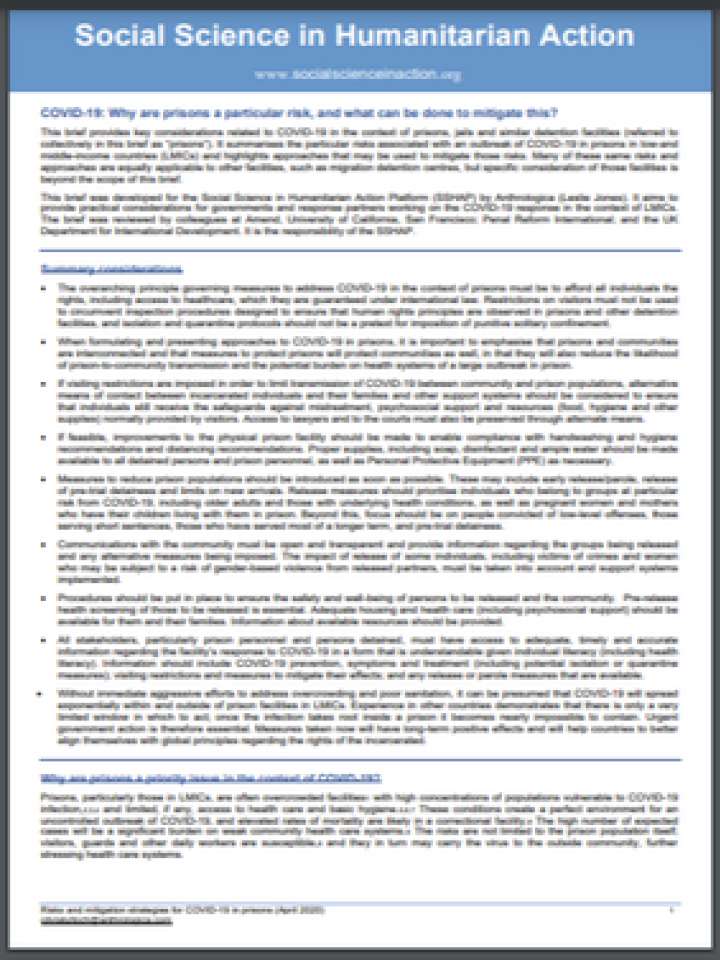COVID-19: why are prisons at particular risk, and what can be done to mitigate this?
This brief provides key considerations related to COVID-19 in the context of prisons, jails and similar detention facilities (referred to collectively in this brief as “prisons”). It summarises the particular risks associated with an outbreak of COVID-19 in prisons in low-and middle-income countries (LMICs) and highlights approaches that may be used to mitigate those risks. Many of these same risks and approaches are equally applicable to other facilities, such as migration detention centres, but specific consideration of those facilities is beyond the scope of this brief.
This brief provides a number of summary considerations for COVIS-19 in the context of prisons, including
- The overarching principle governing measures to address COVID-19 in the context of prisons must be to afford all individuals the rights, including access to healthcare, which they are guaranteed under international law.
- When formulating and presenting approaches to COVID-19 in prisons, it is important to emphasise that prisons and communities are interconnected and that measures to protect prisons will protect communities as well, in that they will also reduce the likelihood of prison-to-community transmission and the potential burden on health systems of a large outbreak in prison.
- Procedures should be put in place to ensure the safety and well-being of persons to be released and the community.
Explore further
